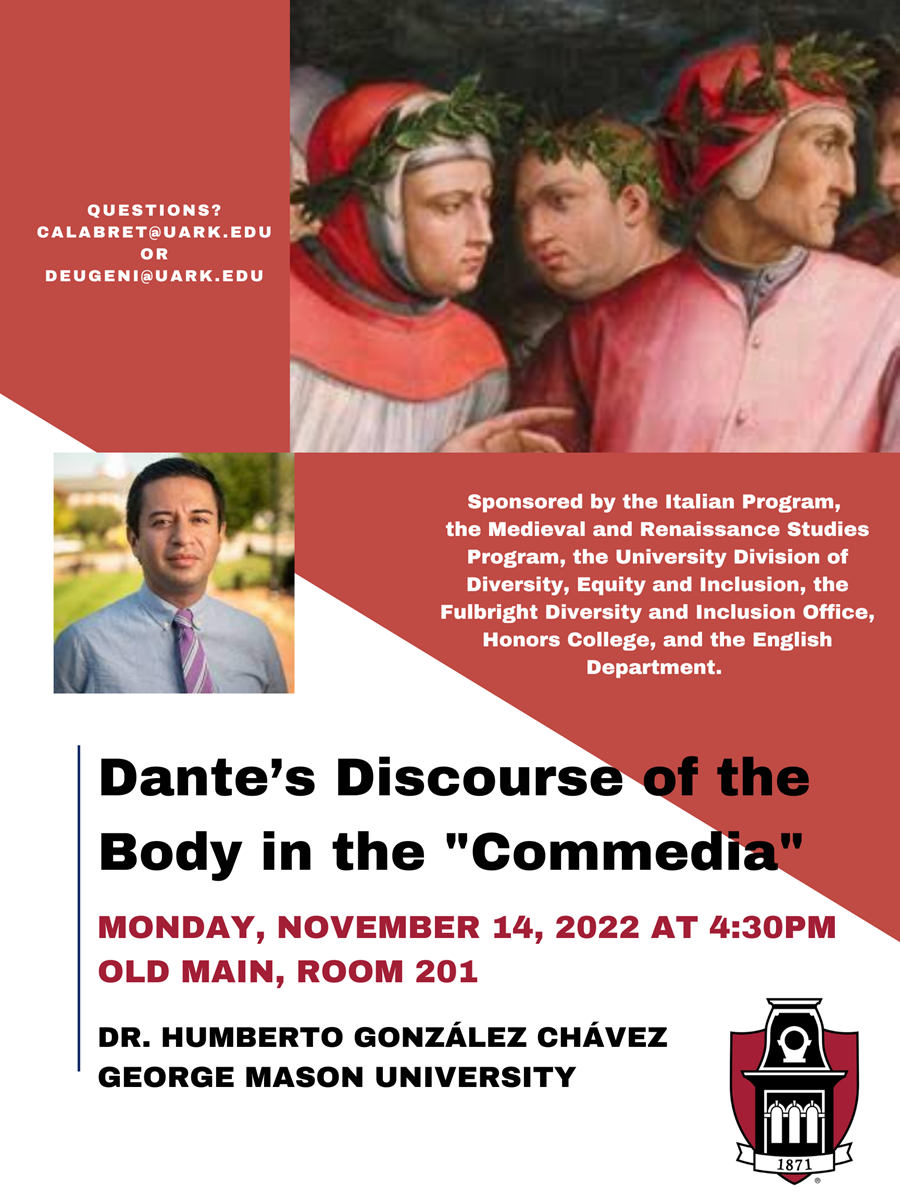
The Italian Program is glad to invite you a lecture by Humberto González Chávez on "Dante's Discourse of the Body in the Commedia" at 4:30 p.m. Monday, Nov. 14, in Old Main, room 201. Please see attached flyer for further details and the presentation's abstract below. Many thanks to the Medieval and Renaissance Studies Program; the University Division of Diversity, Equity and Inclusion; the Fulbright Diversity and Inclusion Office; Honors College; and the English Department for co-sponsoring this event.
All are welcome! Should you have any questions, please contact calabret@uark.edu or deugeni@uark.edu.
We hope to see you there.
Dante's Discourse of the Body in the Commedia
The permanence of the body is a preoccupation of Dante throughout the Commedia, from his insistence on the corporeal nature of his journey by invoking the raptus of St. Paul in Inferno 2 to his contemplation of the mystery of the Incarnation in Paradiso 33. In the poem, Dante's meditation on the body is connected to a series of crucial theological issues: the visio Dei (beginning with Inf. 2), the resurrection of the body (beginning with Inf. 6), ensoulment (beginning with Inf. 13) and the Incarnation (beginning with Inf. 25). Dante's thinking on the body is more than Biblical and theological, however; it is also poetic and philosophical, intimately connected to his reading of Ovid's Metamorphoses, a work which itself engages such physical and metaphysical problems as matter/form, bodies, change/permanence, selfhood/identity. In this talk, I consider some of these issues in key passages from the Inferno, where - I demonstrate - we already find the seeds of Dante's great discourse of the body which reaches its culmination in the Paradiso.
Topics
Contacts
Daniela D'Eugenio, assistant professor
World Languages, Literatures and Cultures
479-575-2951, deugeni@uark.edu